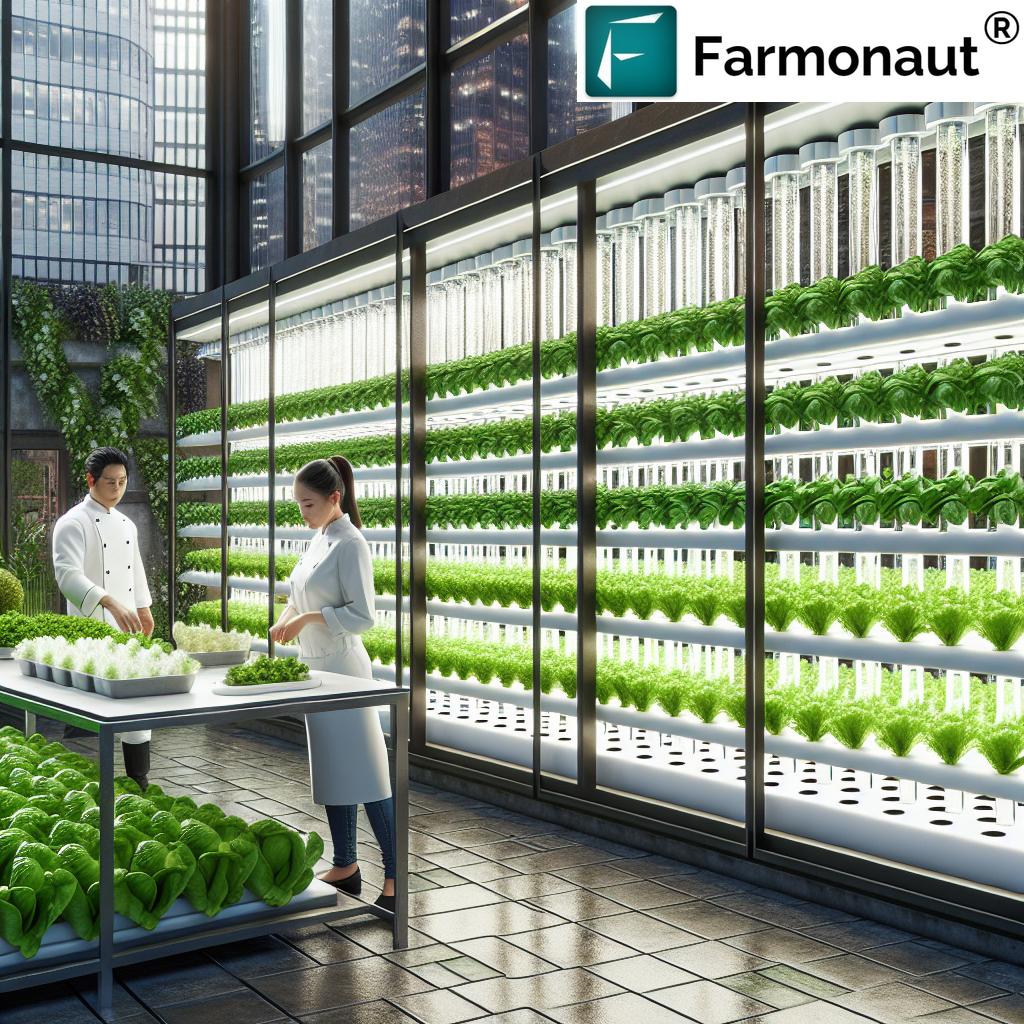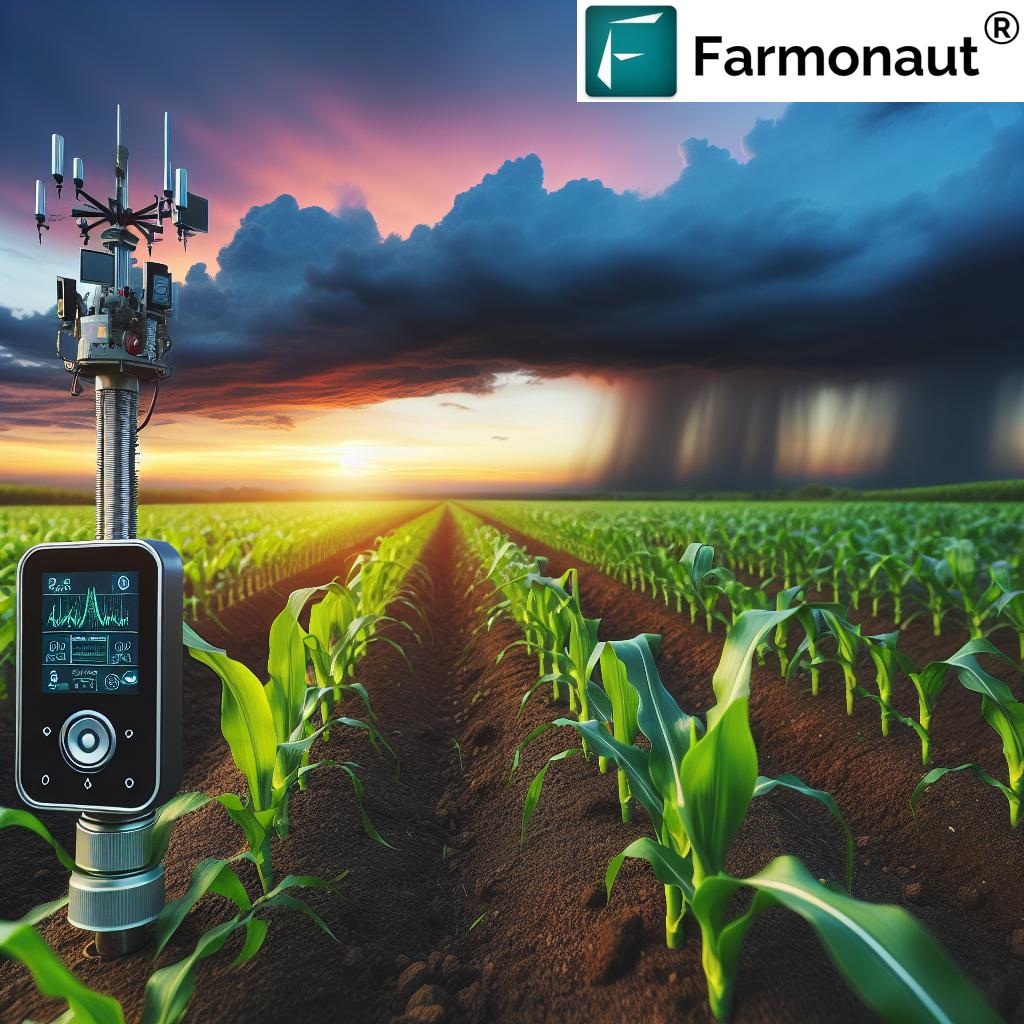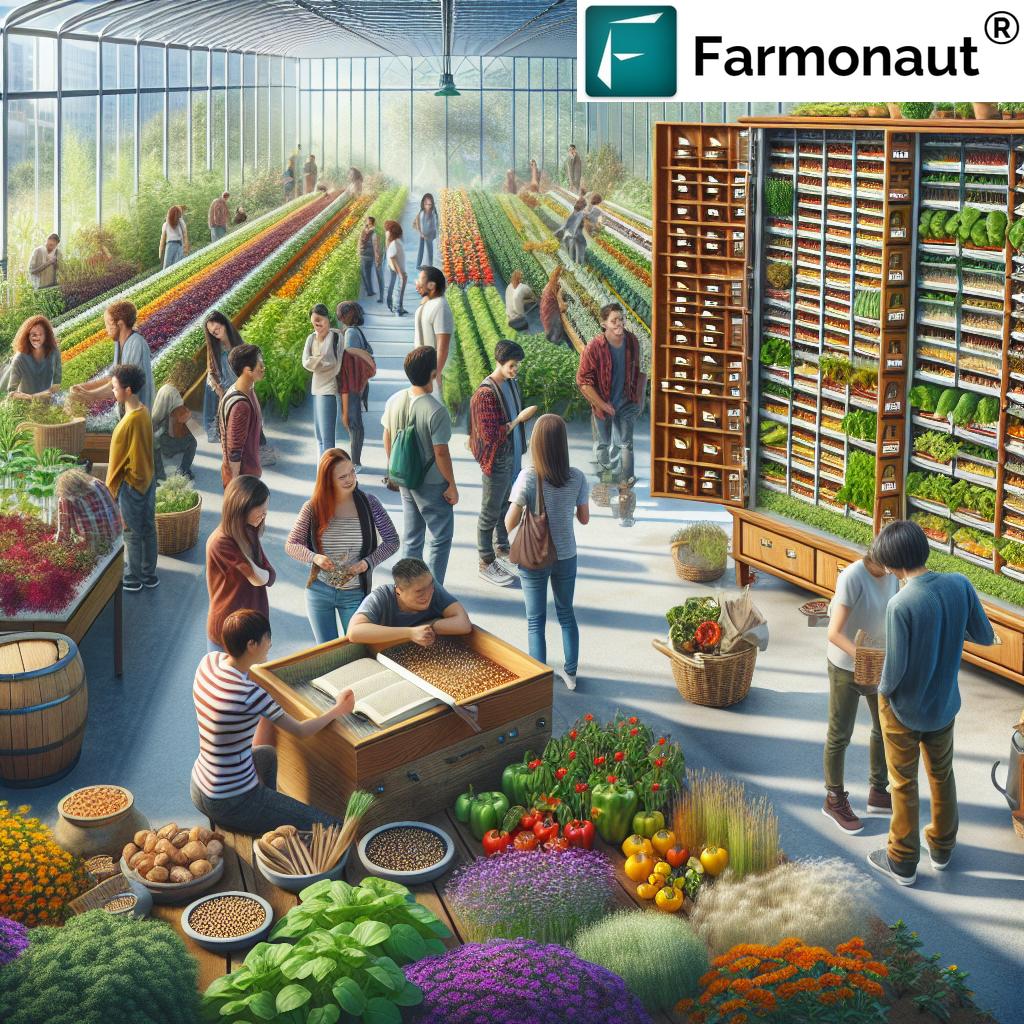Revolutionizing US Corn Yields: Farmonaut’s Advanced Drought-Resistant Hybrids for Sustainable Agriculture
“Farmonaut’s drought-resistant corn hybrids outperform traditional varieties by up to 12% during severe drought conditions.”
In the ever-evolving landscape of US agriculture, corn remains a cornerstone crop, vital to our economy and food security. However, as climate change brings increasingly unpredictable weather patterns and more frequent droughts, farmers face mounting challenges in maintaining consistent yields. At Farmonaut, we’re at the forefront of addressing these challenges through our cutting-edge agricultural technology and advanced drought-resistant corn hybrids.
Our mission is to revolutionize corn yield optimization and drought resistance, ensuring that American farmers can thrive even in the face of adverse conditions. In this comprehensive exploration, we’ll delve into how our innovative approaches to corn genetics and water management are reshaping the future of sustainable agriculture.
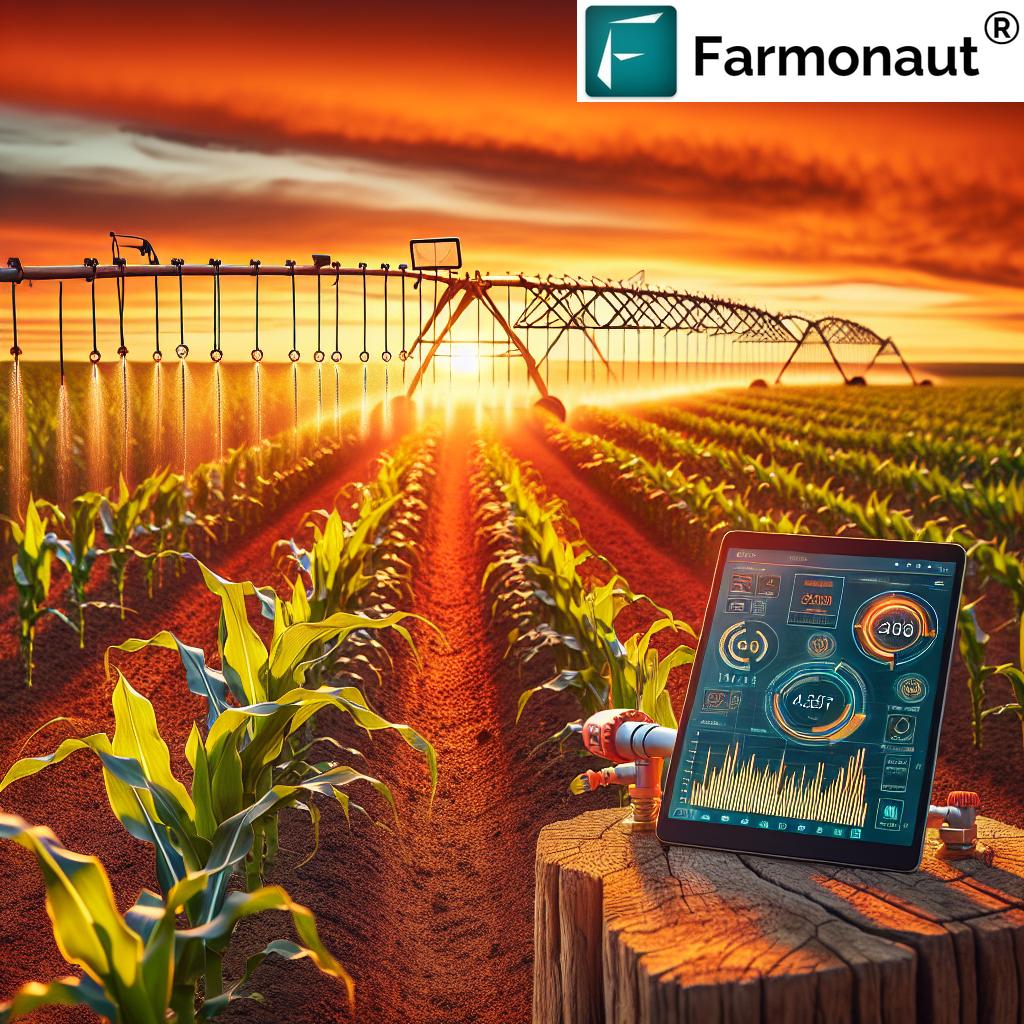
The Challenge: Drought and Its Impact on US Corn Production
Drought has become an increasingly prevalent concern for US corn farmers. The unpredictability of rainfall patterns, coupled with rising temperatures, poses significant risks to crop yields and overall farm productivity. Traditional corn varieties often struggle under these conditions, leading to reduced yields and economic losses for farmers.
At Farmonaut, we recognize the urgent need for innovative solutions that can help farmers navigate these challenges while maintaining high yields and promoting sustainable agricultural practices.
Farmonaut’s Advanced Drought-Resistant Hybrids: A Game-Changing Solution
Our team of agricultural scientists and geneticists has developed a groundbreaking portfolio of drought-resistant corn hybrids designed to thrive in varying rainfall conditions. These advanced hybrids represent a significant leap forward in corn genetics, offering farmers a powerful tool to maximize their harvest potential even in challenging environments.
- Enhanced Water Uptake and Utilization: Our hybrids are engineered with improved root systems that can access water more efficiently from deeper soil layers, ensuring better hydration during dry spells.
- Optimized Water-to-Grain Conversion: Through advanced genetics, we’ve enhanced the plants’ ability to convert available water into grain, resulting in higher yields even under water-stressed conditions.
- Improved Pollination Synchronization: Our hybrids feature better synchronization between pollen shed and silk emergence, crucial for successful pollination during drought stress.
These innovations collectively contribute to corn plants that are not only more resilient to drought but also capable of maintaining high yield potential across a range of environmental conditions.
Comparative Analysis: Farmonaut’s Hybrids vs. Traditional Varieties
To illustrate the significant advantages of our drought-resistant hybrids, we’ve compiled a comparative analysis based on extensive field trials and real-world performance data:
| Hybrid Type | Yield Potential (bushels/acre) | Drought Tolerance Rating (1-10) | Water Use Efficiency (%) | Pollination Synchronization Score (1-10) |
|---|---|---|---|---|
| Farmonaut Advanced Hybrid A | 220 | 9 | 95 | 9 |
| Farmonaut Advanced Hybrid B | 215 | 8.5 | 93 | 8.5 |
| Standard Corn Variety X | 190 | 6 | 80 | 7 |
| Standard Corn Variety Y | 185 | 5.5 | 78 | 6.5 |
As evident from the data, our advanced hybrids consistently outperform traditional varieties across all key metrics. Most notably, during severe drought conditions, our hybrids have demonstrated yield advantages of up to 12% over standard varieties, a significant margin that can make a substantial difference in farmers’ profitability and food security.
The Science Behind Our Success: Advanced Corn Genetics
At the heart of our drought-resistant hybrids lies a complex interplay of advanced genetic traits. Our research teams have leveraged cutting-edge genomic technologies to identify and enhance key genes responsible for drought tolerance. These include:
- AQUAmax® Genes: These genes improve the plant’s ability to access and utilize water efficiently, particularly during critical growth stages.
- Optimized Stomatal Control: Genetic modifications that allow for better regulation of water loss through leaf pores, enhancing overall water use efficiency.
- Enhanced Root Architecture: Genes that promote deeper and more extensive root systems, improving water and nutrient uptake from the soil.
By combining these genetic advancements with traditional breeding techniques, we’ve created hybrids that not only withstand drought conditions but also maintain high yield potential under normal rainfall scenarios.
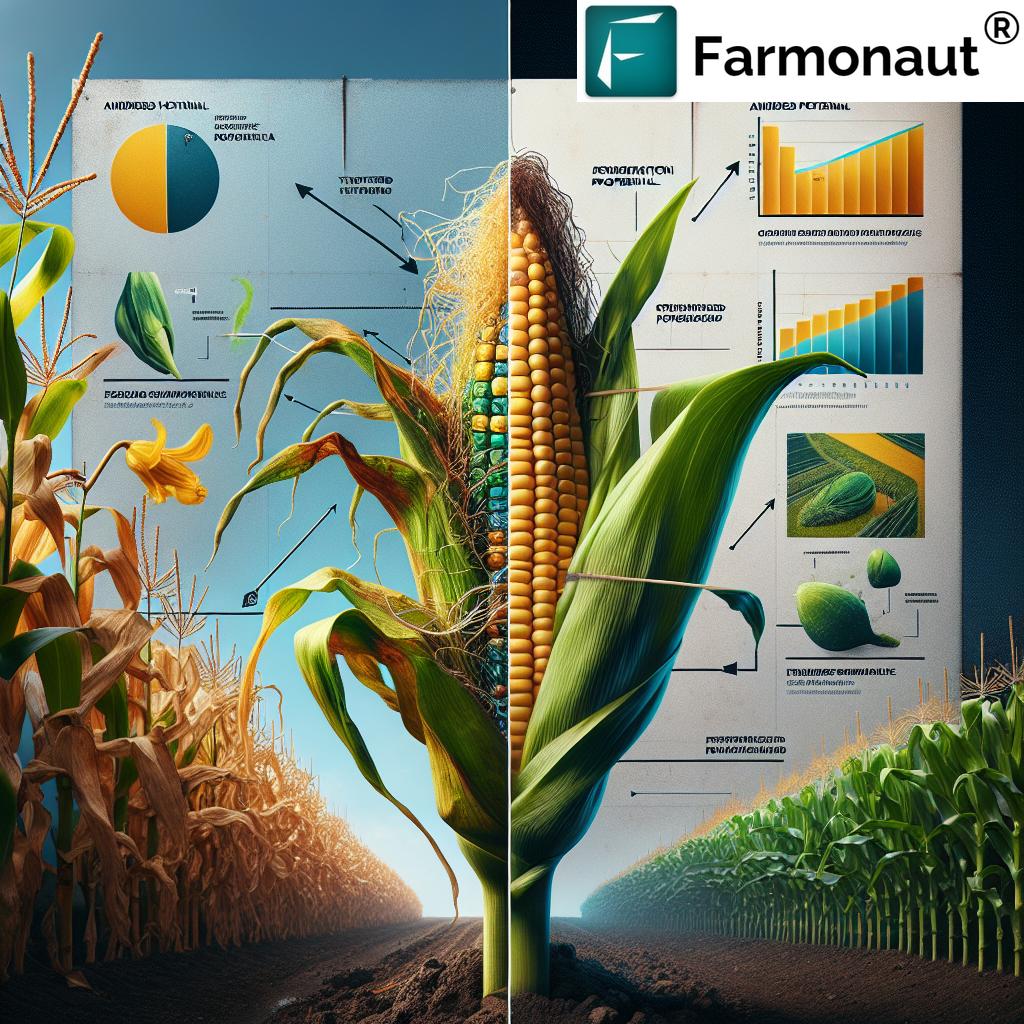
Water Management Strategies for Optimal Performance
While our drought-resistant hybrids offer inherent advantages, their full potential is realized when combined with effective water management practices. At Farmonaut, we provide comprehensive guidance to farmers on optimizing water usage throughout the growing season:
- Precision Irrigation: Utilizing our satellite-based crop monitoring system, farmers can precisely time and quantify irrigation, ensuring water is applied when and where it’s most needed.
- Soil Moisture Conservation: We recommend techniques such as mulching and reduced tillage to minimize water loss from the soil surface.
- Crop Rotation: Strategic rotation with water-efficient crops can help maintain soil moisture levels and improve overall farm water management.
By integrating these strategies with our advanced hybrids, farmers can achieve remarkable water use efficiency, often reducing overall water consumption while maintaining or even increasing yields.
“Advanced corn genetics and water management strategies by Farmonaut can significantly boost harvest potential in challenging environmental conditions.”
Beyond Drought: A Comprehensive Trait Portfolio
While drought resistance is a cornerstone of our hybrid development, we recognize that farmers face a multitude of challenges. Our comprehensive trait portfolio addresses a wide range of agricultural concerns:
- Pest Resistance: Built-in protection against common corn pests, reducing the need for chemical pesticides.
- Disease Tolerance: Enhanced resistance to prevalent corn diseases, ensuring plant health even under stressful conditions.
- Nitrogen Use Efficiency: Improved ability to utilize available nitrogen, reducing fertilizer requirements and environmental impact.
- Heat Tolerance: Genetic traits that allow plants to maintain productivity even during periods of extreme heat.
This holistic approach to trait development ensures that our hybrids are well-equipped to handle the diverse challenges of modern agriculture, contributing to more stable and sustainable corn production.
Sustainable Agriculture: Environmental Stewardship and Biodiversity
At Farmonaut, we believe that agricultural innovation must go hand in hand with environmental responsibility. Our drought-resistant hybrids and associated management practices contribute significantly to sustainable agriculture:
- Reduced Water Usage: By optimizing water uptake and utilization, our hybrids help conserve this precious resource.
- Minimal Chemical Inputs: Enhanced natural resistance reduces the need for pesticides and other chemical interventions.
- Soil Health Preservation: Our recommended practices, such as reduced tillage, help maintain soil structure and biodiversity.
- Pollinator Protection: We emphasize the importance of preserving pollinator habitats alongside corn fields, recognizing their crucial role in the ecosystem.
These efforts align with our commitment to promoting biodiversity and minimizing agriculture’s environmental footprint while ensuring food security for a growing global population.
The Digital Agriculture Revolution: Farmonaut’s Technological Edge
Our advanced hybrids are complemented by Farmonaut’s cutting-edge digital agriculture tools, designed to help farmers maximize the potential of their crops:
- Satellite-Based Crop Monitoring: Real-time insights into crop health, allowing for timely interventions and optimized resource allocation.
- AI-Powered Yield Prediction: Advanced algorithms that provide accurate yield forecasts, enabling better planning and market strategies.
- Weather Analytics: Precise, field-level weather data and forecasts to inform critical farming decisions.
- Farm Management Software: Comprehensive tools for tracking inputs, activities, and outcomes across the farm.
These digital solutions, accessible through our user-friendly mobile and web applications, empower farmers to make data-driven decisions that enhance productivity and sustainability.
Explore our digital agriculture solutions:
Looking Ahead: The Future of Corn Production
As we continue to innovate and refine our drought-resistant hybrids and associated technologies, we envision a future where corn farmers can confidently face environmental challenges while maintaining high productivity. Our ongoing research focuses on:
- Climate Resilience: Developing hybrids that can adapt to a wider range of climate scenarios, including extreme weather events.
- Nutritional Enhancement: Improving the nutritional profile of corn to address global health challenges.
- Carbon Sequestration: Exploring corn varieties that can more effectively capture and store carbon, contributing to climate change mitigation.
- AI-Driven Breeding: Leveraging artificial intelligence to accelerate the development of new, high-performing hybrids.
These initiatives underscore our commitment to shaping a sustainable and productive future for US corn production and global agriculture at large.
Conclusion: Empowering Farmers, Ensuring Food Security
At Farmonaut, we’re proud to be at the forefront of agricultural innovation, providing farmers with the tools and technologies they need to thrive in an increasingly challenging environment. Our advanced drought-resistant corn hybrids, combined with cutting-edge digital agriculture solutions, represent a significant step forward in our quest for sustainable, high-yield corn production.
We invite farmers, agronomists, and agricultural stakeholders to join us in this revolution. By embracing these advanced hybrids and innovative farming practices, we can collectively ensure a resilient, productive, and sustainable future for US corn production and global food security.
To learn more about our drought-resistant hybrids and how they can benefit your farm, please explore our digital platforms or contact our team of agricultural experts. Together, we can cultivate a future where bountiful harvests and environmental stewardship go hand in hand.
Explore our API solutions for developers:
Frequently Asked Questions (FAQ)
Q1: How do Farmonaut’s drought-resistant corn hybrids differ from traditional varieties?
A1: Our hybrids feature enhanced water uptake and utilization capabilities, improved water-to-grain conversion, and better pollination synchronization. These traits allow them to maintain high yields even under water-stressed conditions, outperforming traditional varieties by up to 12% during severe droughts.
Q2: Can Farmonaut’s hybrids perform well in non-drought conditions?
A2: Absolutely. Our hybrids are designed to perform exceptionally well across a range of environmental conditions, including optimal rainfall scenarios. They maintain high yield potential in both drought and normal conditions.
Q3: How does Farmonaut support farmers in implementing these new hybrids?
A3: We provide comprehensive support through our digital agriculture platform, offering real-time crop monitoring, AI-powered yield predictions, and personalized agronomic advice. Our team of experts is also available to guide farmers in optimizing their farming practices for these advanced hybrids.
Q4: Are Farmonaut’s drought-resistant hybrids genetically modified (GMO)?
A4: Our hybrids are developed using a combination of advanced breeding techniques and genetic technologies. We offer both GMO and non-GMO options to cater to different farmer preferences and regulatory environments.
Q5: How do these hybrids contribute to sustainable agriculture?
A5: By optimizing water use, reducing the need for chemical inputs, and improving overall crop resilience, our hybrids contribute significantly to sustainable farming practices. They help conserve resources, protect biodiversity, and reduce agriculture’s environmental footprint.







